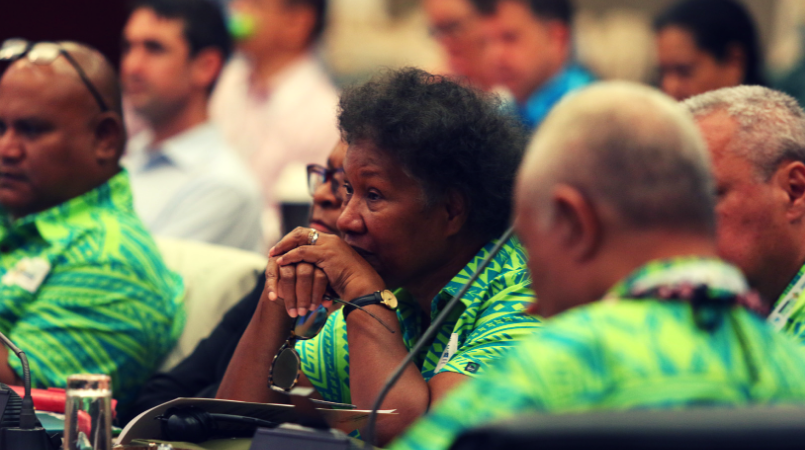
Adequate funding is needed to see real action in reducing emissions from deforestation and forest degradation, and the conservation, sustainable management and enhancement of forest carbon stocks.
According to Dr. Ruth Turia, Director of the Forest Policy & Planning Directorate of the PNG Forest Authority, Papua New Guinea has not received enough external and internal funding to support REDD+ activities and programs.
Dr Turia said funding is critical to develop the capacity of local communities to look after them in the face of climate change.
She said this after a Forestry Technical Meeting as part of the Pacific Week of Agriculture (PWA) where she delivered an update on PNG’s efforts in REDD+.
“So PNG, Solomon Islands, Vanuatu and Fiji were also asked to give an update on what we are doing. So I gave an update on what PNG has done so far in terms of reducing emissions from deforestation and forest degradation,” she said.
“For PNG you may know we have done good progress in our efforts, the only issue for us at the moment is we’ve done a lot of things, we’ve tried to meet the requirements of the UNFCCC*, but in terms of funding to PNG we still have not received anything substantial in order to try and pass that on to the communities to enable them to do some things to help themselves,” said Dr Turia.
The PNG Government has also been pushed to make available funding for REDD+ activities.
“That has been something that we having been pressing to the government that if they want some real action in the country, particularly in relation to climate change, they should be giving funding to Climate Change Development Authority and also to PNGFA, and I guess agriculture and the other natural resources sector that have some input in terms of what happens within the country in terms of climate change.”
PNG’s achievements under REDD+ include the Development of the National REDD+ Strategy 2017 – 2027, the submission of the Forest Reference Emission Level (FRL) in 2017, and the National Forest Monitoring System (NFMS).
However the country has been faced with challenges such as:
- Institutional arrangement with defining the roles and responsibilities in the initial phases with the development of REDD+ activities
- Land tenure will always be an issue for any development which will hinder the progress of REDD+ activities if the local people do not fully grasp the concept of REDD+ which will require continuous awareness
- Implementation phase of REDD+ activities may not have the same monetary values compared to any development activities such as logging, mining, etc.
Meanwhile Dr Turia has suggested opportunities for regional cooperation which include:
- Establishment of regional hub of the experiences and lessons learnt of the whole process of REDD+ activities;
- Take stock of trainings, especially with the tools or software used by various countries and how best can capacity be built in the region;
- Countries in the region are at different phases of REDD+ and have different support in terms of financial and technical, from development partners for any regional program how best can this support from development partners or donors be utilised for each country’s specific needs.
* UNFCCC - United Nations Framework Convention on Climate Change
(Dr. Ruth Turia at the Pacific Week of Agriculture)
